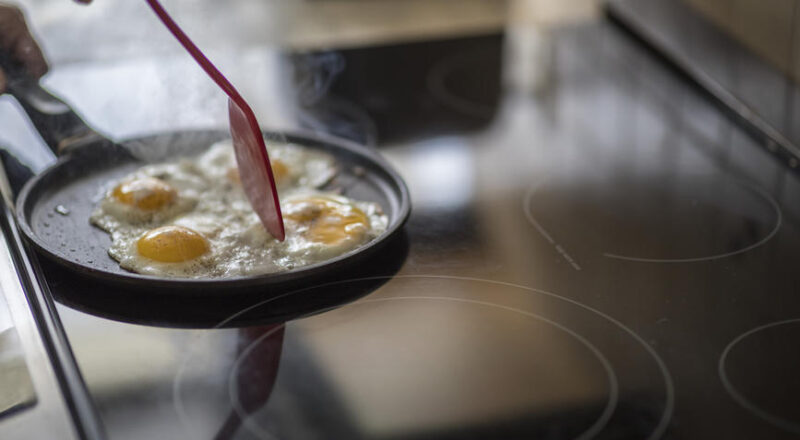When it comes to cooking, many kitchen professionals and home cooks alike appreciate the durability and heat retention of cast iron cookware. However, using cast iron on an induction cooktop requires a bit of care to ensure optimal performance and longevity. In this article, we will discuss what to avoid when using cast iron on induction so that you can enjoy cooking without any hitches.

Avoid Dragging Your Cast Iron
Dragging cast iron across an induction cooktop can lead to scratches and damage to the surface. Instead, always lift your cast iron cookware when moving it. This simple habit will preserve both your cookware and the cooktop.
Do Not Use Extremely High Heat
Many people assume that because cast iron is sturdy, it can withstand all levels of heat. However, using extremely high heat can cause uneven cooking and even damage the cookware over time. Start with moderate heat settings to allow the cookware to heat gradually.
Understanding Heat Distribution
One common issue with induction cooking is cold spots. This occurs when the heat isn’t evenly distributed across the pan. To counteract this, preheat your cast iron slowly and ensure it’s centered properly on the cooktop.
Avoid Cooking Acidic Foods Frequently
Cooking acidic foods like tomatoes and vinegar-based dishes frequently can wear down the seasoning of your cast iron skillet. This can lead to rust and a metallic taste in your food. If you do cook acidic dishes, make sure to reseason your pan regularly.
Proper Reseasoning Techniques
To maintain the seasoning on your cast iron, apply a thin layer of oil after cleaning and heat the pan until it starts to smoke slightly. This process helps restore the protective coating that keeps food from sticking and prevents rust.
Do Not Leave Cast Iron Wet
Water is the enemy of cast iron. Leaving cast iron wet can result in rust, which compromises the cookware’s integrity. Always dry your cast iron thoroughly after washing and apply a light coat of oil to prevent moisture from causing damage.
Effective Drying Methods
After rinsing, consider placing your cast iron on a low flame or in a warm oven to ensure all moisture evaporates. This practice will help preserve your pan’s seasoning and prevent rust.
Avoid Using Metal Utensils
While cast iron is tough, metal utensils can scratch and wear down the seasoning. Instead, opt for wooden or silicone utensils that are gentle on the surface.
Why Wooden Utensils Are Best
Wooden utensils are not only safe for your cast iron cookware, but they also add a touch of traditional charm to your cooking. They are less likely to damage the pan and help maintain the seasoning.
Avoid Rapid Temperature Changes
Sudden temperature shifts can cause cast iron to crack or warp. Avoid placing a hot pan under cold water or moving it from a hot stove to a cold surface abruptly.
How to Manage Temperature Changes
If you need to cool down your cast iron, let it sit at room temperature before washing. This will help prevent any damage caused by thermal shock.
Ensure Compatibility with Induction
Not all cast iron pans are suitable for induction cooktops. Before using your cookware, check that it’s compatible with induction. Look for a smooth, flat bottom to ensure proper contact with the cooktop.
Choosing the Right Cast Iron
When purchasing cast iron, consider brands that are designed for induction cooking. These pans often feature a smooth base that enhances compatibility and performance.

FAQ Section
Can I use any cast iron on an induction cooktop?
Not all cast iron is suitable for induction. Ensure your cookware has a flat bottom for proper contact.
Why does my cast iron have cold spots?
Cold spots can occur due to uneven heat distribution. Preheat your pan slowly and evenly.
How do I maintain the seasoning on my cast iron?
Regularly apply a thin layer of oil after cleaning and heat the pan until it smokes slightly to restore seasoning.
For more information on using cast iron with induction cooktops, check out this external guide from Lodge Cast Iron and explore more tips here.
This article contains affiliate links. We may earn a commission at no extra cost to you.

